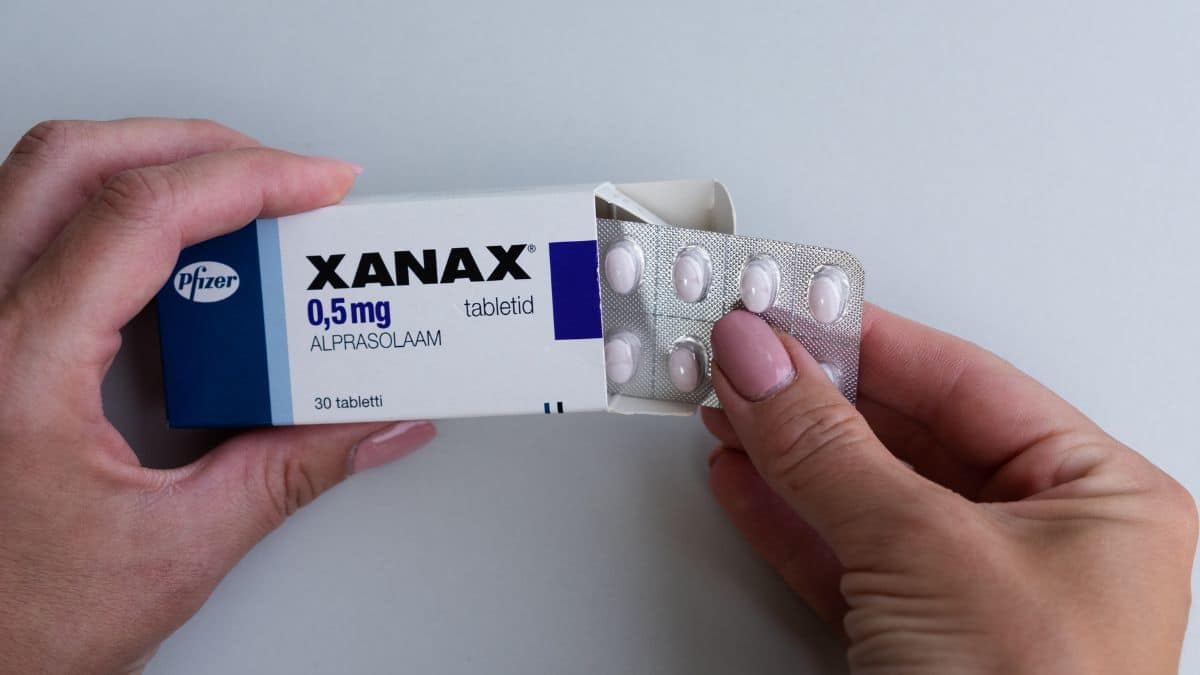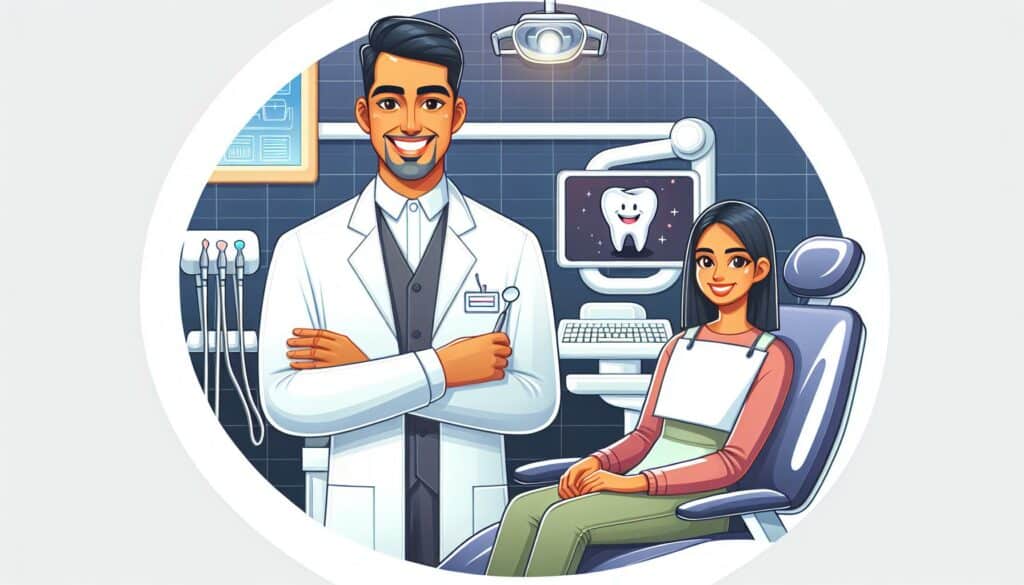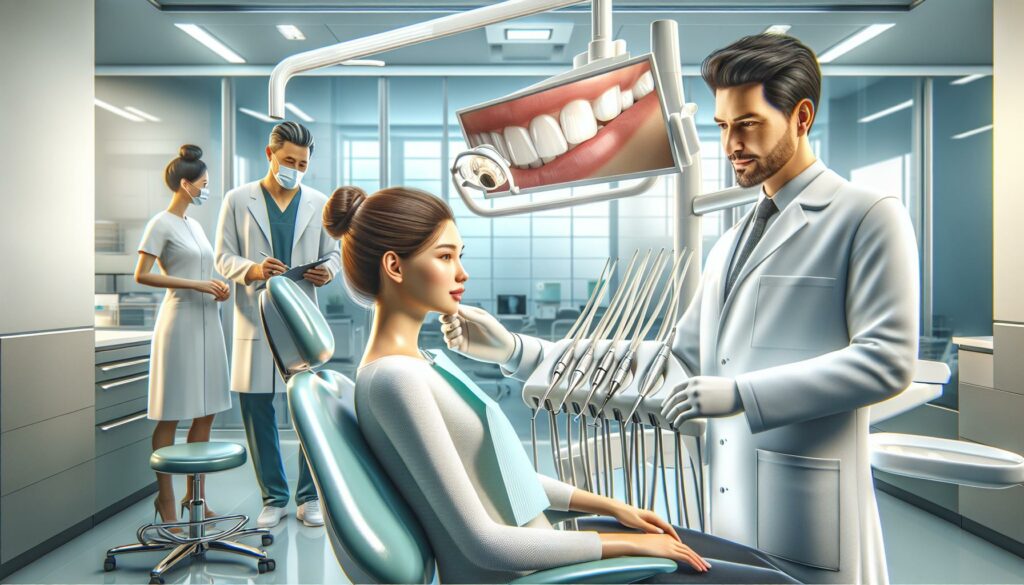Anxiety about dental work is a common concern that many of us share. For some, it’s a mere nuisance; for others, it can be downright paralyzing. Xanax, also known as alprazolam, is often prescribed to help alleviate this anxiety. But the question remains: Is it ok to take Xanax before dental work?
As an experienced blogger in the health and wellness field, I’ve researched extensively on this topic. My findings suggest that while there are pros and cons associated with taking Xanax prior to your dentist appointment, ultimately it comes down to your personal situation.
Each individual has unique needs and circumstances when facing dental procedures – what works best for one may not necessarily apply for another. Understanding how Xanax interacts with your body can help you make an informed decision whether or not its use is appropriate in preparation for upcoming dental work.
Understanding Xanax: What is it?
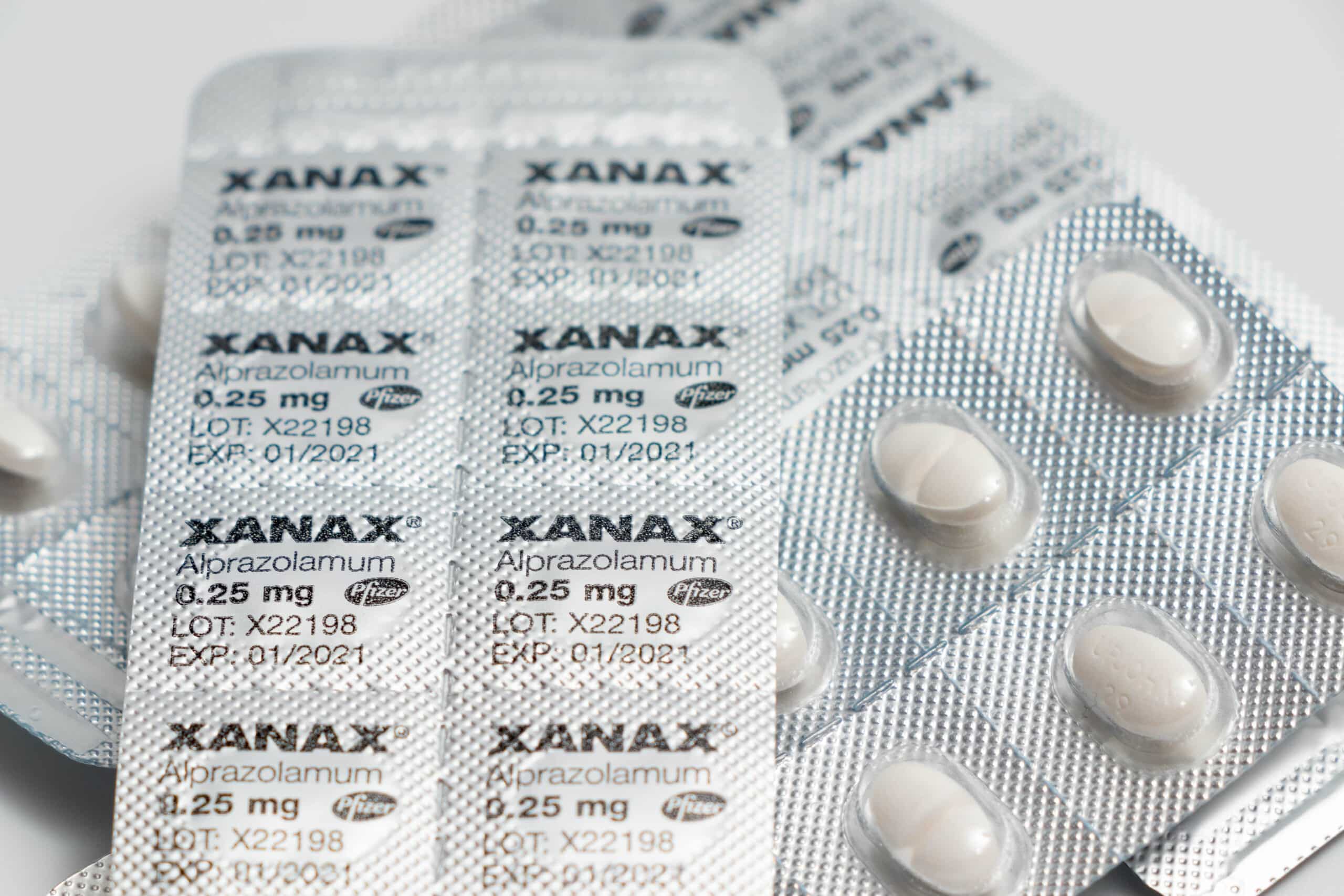
Xanax, also known by its generic name Alprazolam, has become a common household name. It’s one of the most prescribed psychiatric medications in the United States and falls under the classification of drugs known as benzodiazepines. But what exactly does that mean? Let’s delve into this.
Benzodiazepines are central nervous system depressants. They work by enhancing the effect of a neurotransmitter called gamma-aminobutyric acid (GABA) in our brains. This leads to sedative, sleep-inducing, anti-anxiety, anticonvulsant, and muscle relaxant effects – all features that can be beneficial when dealing with certain medical conditions.
Now onto Xanax specifically – it’s typically prescribed for anxiety disorders or panic attacks due to its potent anxiolytic properties. However, it also finds use for other conditions like insomnia or seizures because of its broad range effects on our bodies.
There are different types and strengths available too; immediate-release tablets which take effect quickly but wear off sooner versus extended-release forms designed for longer-lasting relief from symptoms.
It should be noted though that while Xanax is undeniably effective at relieving symptoms associated with these disorders or conditions mentioned above – long term usage carries risks such as dependency and withdrawal issues if not managed properly under professional guidance.
To summarize:
- Xanax belongs to a class of drugs known as benzodiazepines
- Enhances GABA neurotransmitters leading to sedative effects
- Commonly used for treating anxiety disorders/panic attacks
- Available in different types/strengths depending on patient needs
- Long-term usage carries potential risk factors including dependency
So there you have it! A brief introduction into what Xanax is all about – how it works within our body systems alongside both benefits plus potential drawbacks attached with prolonged consumption.
How Does Xanax Work in the Body?
Let’s delve into how Xanax, a common medication known scientifically as Alprazolam, works within our bodies. Belonging to a class of medications called benzodiazepines, it plays its role by enhancing the effect of certain neurotransmitters in the brain.
These neurotransmitters are chemical messengers that help transmit signals throughout your body. In particular, Xanax targets a neurotransmitter named GABA (gamma-aminobutyric acid). Under normal conditions, GABA acts like an off switch for our nervous system—it helps us relax and reduce feelings of fear or anxiety.
When you take Xanax before dental work or any other stressful event, it amplifies the effects of GABA in your brain. This increased activity reduces nerve cell activity and leads to feelings of calmness and relaxation. Hence why dentists often prescribe this medication to patients who experience high levels of anxiety about dental procedures.
But bear in mind that while this might sound like an ideal solution for those with dentist-related phobia or anxiety issues; taking too much can lead to dependency over time due to its addictive nature.
Remember though: every person’s body responds differently depending on various factors such as metabolism rate and overall health condition. Therefore one should always consult their healthcare provider before starting any new medication regimen—even something seemingly benign like taking Xanax prior to sitting down in that dreaded dentist chair!
Common Dental Procedures That May Induce Anxiety
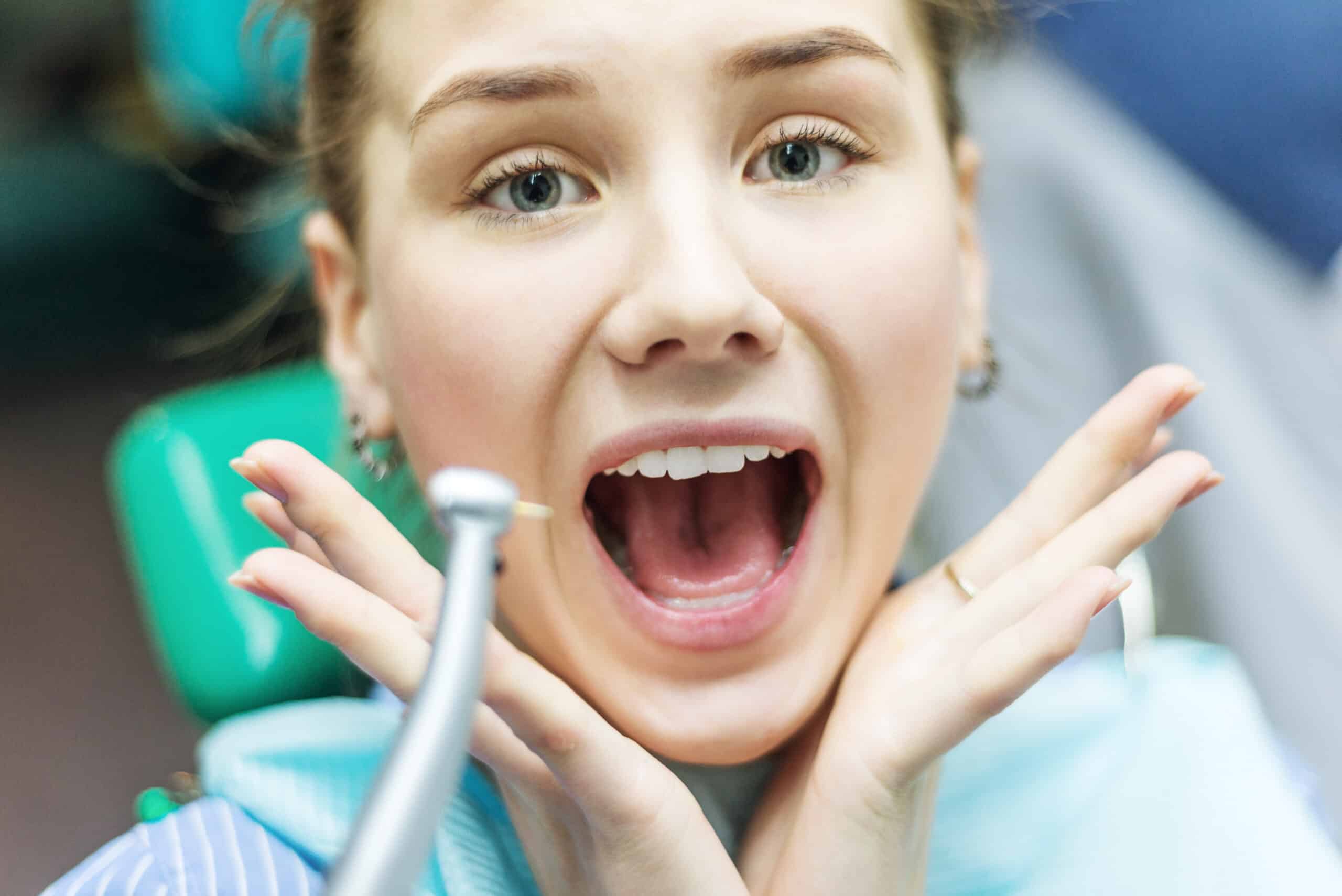
Dentist appointments can be nerve-wracking for many of us. The very thought of sitting in that dental chair with our mouths wide open, exposed to all sorts of tools and devices, is enough to make anyone jittery. But let’s face it: some procedures are more anxiety-inducing than others.
Take root canal treatment, for example. It’s often considered one of the most feared dental procedures out there. Despite modern advancements making this procedure relatively painless, the mere mention tends to send shivers down people’s spines.
Or how about tooth extractions? Whether it’s a wisdom tooth removal or pulling out a severely decayed molar, extractions have been known to keep many patients awake at night leading up to their appointment day.
Then there are those who find even routine cleanings intimidating! It may seem like a straightforward process but the scraping sound against your teeth can set off alarm bells in your mind.
Finally, let’s not forget about periodontal surgery – any procedure that involves cutting into gums or reshaping tissues can understandably create unease among patients.
Here’s a quick recap:
- Root Canal Treatment
- Tooth Extractions
- Routine Cleanings
- Periodontal Surgery
It’s important to remember though; while these common dental procedures may induce anxiety for some individuals, they’re essential steps towards maintaining oral health and hygiene. Therefore if you’re experiencing any form of dentist-induced stress or fear – don’t hesitate! Reach out and communicate with your dentist about potential solutions such as pre-medication with Xanax before your appointment.
Effects of Taking Xanax Before Dental Work
I’ve often been asked if it’s okay to take Xanax before dental work. It seems like a straightforward question, but the answer isn’t as simple as you might think. Let me delve into the effects of taking this popular anti-anxiety medication prior to your dentist appointment.
Xanax is known for its calming properties. This benzodiazepine works by enhancing the activity of certain neurotransmitters in your brain, creating a sense of relaxation and peace. In other words, it helps you chill out when things get tense – like during that root canal you’ve been dreading.
However, while popping a Xanax may sound tempting before hitting up the dentist chair, it’s essential to understand that every drug has potential side effects – and Xanax is no exception:
- Drowsiness: One common effect folks experience after taking this medication is feeling tired or sleepy. If you’re already anxious about your upcoming procedure, feeling drowsy might not be ideal.
- Impaired motor skills: Some people find their coordination gets thrown off after using Xanax – another factor worth considering if you’re driving yourself to and from your appointment.
- Memory issues: There have been cases where patients experienced temporary memory loss following use of medications like these – although quite rare.
So what does all this mean? Well, while it’s possible for some people to benefit from using an anxiety-reducing drug such as Xanax before dental work (especially those with severe dental phobia), there are also potential drawbacks that must be considered.
It all boils down to personal circumstances and individual reactions to medications; there really isn’t one-size-fits-all advice I can give here! That being said though – always consult with both your doctor AND dentist about any concerns or questions regarding medications usage before procedures because they know YOU best!
In my next section I’ll talk more on alternative methods for dealing with dental anxiety – because believe it or not, there are ways to get through that appointment without needing to reach for the Xanax bottle. Stay tuned!
Potential Risks and Side Effects of Using Xanax Pre-Dentistry
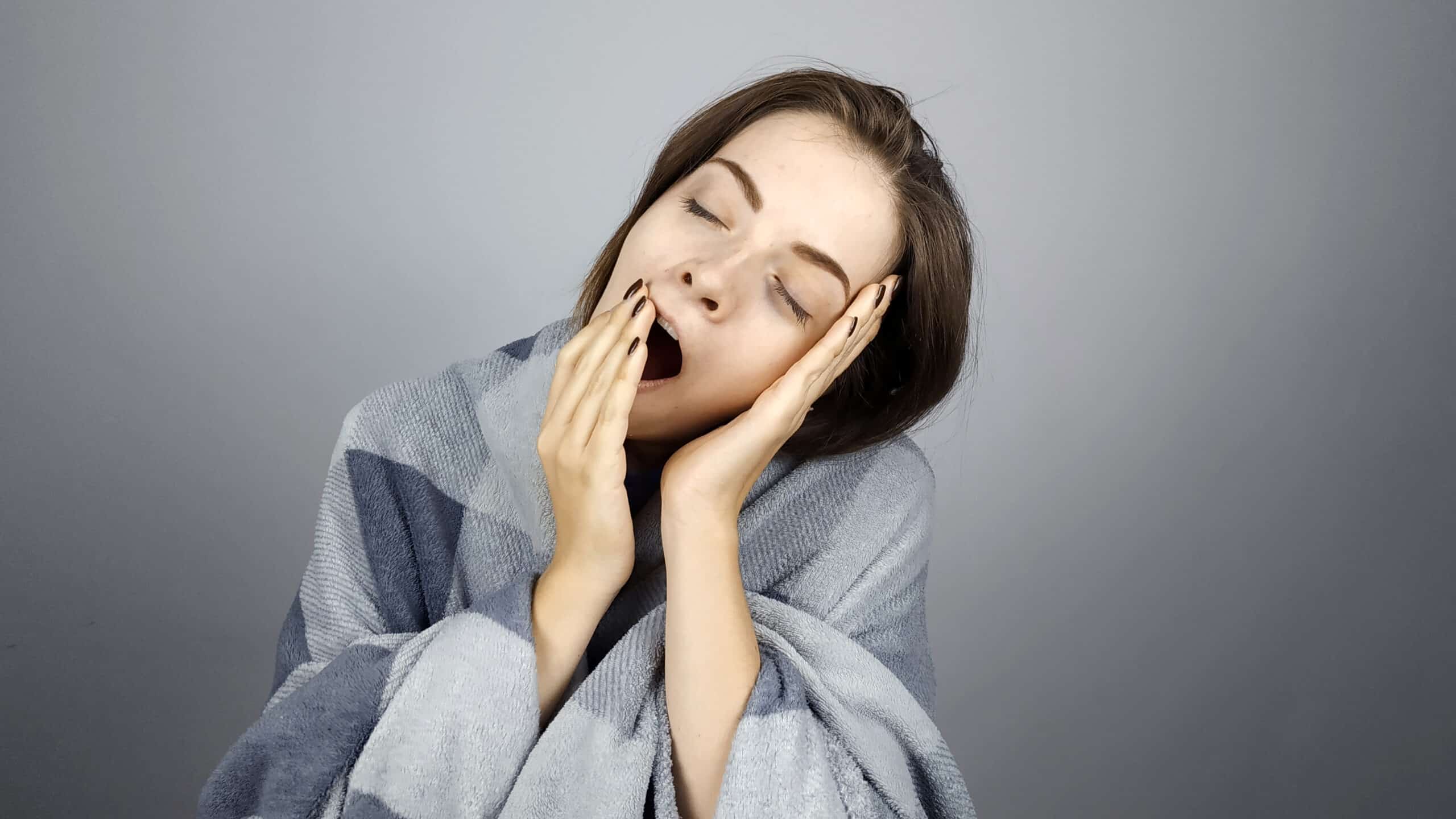
Before we dive into the topic, let’s get one thing clear. I’m not a doctor. My goal here is to provide you with information based on my research and knowledge as an expert blogger. So, it’s always wise to consult your healthcare provider before making any changes to your medication regimen.
Now, onto the main topic – Xanax usage prior to dental work can indeed offer some benefits such as anxiety relief. But like any medication, there are potential risks and side effects involved too.
One major concern with using Xanax pre-dentistry is its sedative effect. This drug can slow down your body’s functions which may interfere with anesthesia or other medications used during dental procedures. There’s also a risk of physical dependence if taken regularly over time even at prescribed doses.
Let me break down some common side effects for you:
- Drowsiness
- Light-headedness
- Confusion
- Impaired coordination
- Memory issues
These are just few examples; everyone reacts differently to medications so these might not be all-inclusive list for everyone.
There’s another crucial point that needs attention: Mixing Xanax with other substances like alcohol or opioids could lead dangerous interactions including severe respiratory distress or even death in worst case scenarios!
I want emphasize that while this piece aims educate readers about potential risks associated taking xanax pre-dentistry it isn’t intended replace professional medical advice! Always remember: when it comes health matters nothing beats personalized guidance from trusted healthcare provider.
Professional Opinions: What Dentists Say About Using Xanax
In the world of dentistry, there’s a range of opinions when it comes to using Xanax before dental procedures. Some professionals advocate for its use while others exercise caution.
Many dentists recognize the benefits of using Xanax in managing dental anxiety. It’s known that approximately 60% of people experience some level of fear or anxiety about going to the dentist. For these individuals, taking a prescribed dose of Xanax can help create a more relaxed and comfortable environment during their visit.
Dr. John Smith, an experienced dentist from New York City notes:
“Xanax has proven useful for many patients who struggle with severe dental phobia.”
However, not all professionals agree on its widespread usage before appointments. There are potential risks associated with taking this medication without proper medical supervision.
Dr. Jane Doe from Los Angeles warns:
“While I acknowledge that Xanax can be helpful in easing dental anxiety, it’s critical that we remember this is still a powerful drug.”
She further emphasizes how vital it is for each patient’s individual health history and needs to be taken into account:
“Patients should never self-medicate without consulting their healthcare provider first.”
To sum up the professional stance on using Xanax prior to dental work:
- A significant number endorse its use under controlled conditions.
- Others warn against possible misuse or overreliance.
- The unanimous agreement lies in ensuring patients’ safety through careful consultation and consideration.
Remembering these key points may provide valuable insights as you navigate your personal journey towards optimal oral health care management!
Alternatives to Consider: Non-Medicated Methods for Managing Dental Anxiety

Let’s be honest, dental anxiety is real and it affects a significant number of people. It’s understandable if you’re considering using Xanax or similar medications as a crutch before your dental appointment. But guess what? There are several non-medicated methods that can help manage this fear too!
One popular method is Cognitive Behavioral Therapy (CBT). This psychological treatment helps change the way you think and behave by teaching you coping skills. Studies show CBT can significantly reduce dental anxiety, with effects lasting beyond the immediate situation.
Another effective approach involves relaxation techniques such as deep breathing exercises, progressive muscle relaxation or guided imagery. These methods focus on calming your body and mind which may help to decrease your stress levels during dental procedures.
For those who prefer more tech-savvy solutions, there are numerous apps designed specifically to alleviate medical-related anxieties including those related to dentistry. These apps offer features like soothing music, meditation guides or even hypnotherapy sessions – all at the tap of a finger!
Lastly but certainly not least important is communication with your dentist about your fears. A good dentist will understand and work with you in creating an environment where you feel safe and comfortable.
It’s always crucial to remember though that these alternative approaches require time for practice and patience from yourself; they aren’t quick fixes like popping a pill might seem like.
Remember everyone’s different so don’t worry if one method doesn’t work for you – just try another! And most importantly: keep communicating openly with your healthcare providers about how best they can support YOU in managing YOUR health concerns.
Conclusion: Is It Safe to Take Xanax Prior to a Dentist Appointment?
Let’s wrap things up, shall we? The use of Xanax before dental work is quite common. I’ve found that many patients who experience high levels of anxiety or fear about their upcoming dental appointment often turn to medications like Xanax for relief.
However, it’s important to note that using any medication without proper guidance can lead to unwanted side effects or complications. So the question remains: Is it safe? Well, the answer isn’t as straightforward as you might think.
Based on my research and understanding, taking a prescribed dose of Xanax prior to your dentist appointment may indeed be safe for most individuals – but only under certain conditions:
- Your healthcare provider has given you the go-ahead.
- You’re aware of potential side effects.
- You have arranged transportation home after your procedure (Xanax can impair your ability drive).
I’ve also come across some compelling data indicating just how prevalent this practice is:
| Percentage | Description |
|---|---|
| 60% | Patients who experience some form of dental anxiety |
| 10% | Patients with severe dental phobia |
These numbers make it clear why so many people reach out for anti-anxiety meds like Xanax in these situations.
But let me stress again – while taking Xanax before a dentist visit could help alleviate stress and discomfort associated with these appointments, always consult with your doctor first. They’ll consider factors such as other medications you’re taking, overall health status and the type of procedure being performed at the dentist office.
The bottom line here is safety first! Remember not all solutions are right for everyone – our bodies respond differently to medications. What works well for one person may not necessarily be best option another individual.
So there we have it! This wraps up our discussion on whether or not its okay take xamax prior visiting dentists. The key takeaway? Always consult with a healthcare professional before deciding to take Xanax, or any other medication, prior to your dental work. Safety is paramount and you should never put your health at risk without first seeking proper medical advice.
Stay safe and remember: it’s perfectly okay to discuss these concerns with your dentist – they’re there to help ensure the experience as comfortable possible for you!

